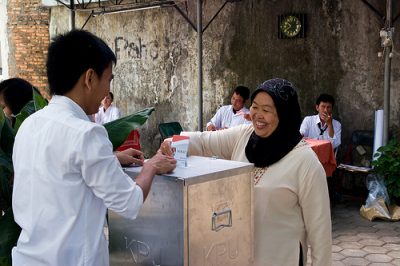During the Cold War, Southeast Asia was led by a handful of autocratic strong leaders – Suharto, Mahathir, Marcos, Lee Kuan Yew, and arguably the
King of Thailand. For the cold war powers, as long as these leaders could control their polity, society and economy, their Machiavellian nature was of no consequence. Supported by the cold war architecture, these men transformed their countries from post-colonial commodity based economies into today’s ‘tigers’ of Asia. Foreign investment poured in, infrastructure was built and countries were brought into the modern era.
Unfortunately, for the most part, these men failed to develop of institutions that would underpin the inevitable evolution to democracy. Such institutions as did exist were undercut or subjugated to support autocratic rule. As the region’s strongmen left the stage in different ways, more political space was created, and democratic reforms put into place. Thailand pulled the military out of direct involvement in politics in the early1990′s (not without some serious violence and strife), and instituted a new constitution.
But as the horrifying events in Bangkok earlier this year proved, Thailand’s institutions, such as the courts and the electoral commission, were not sufficiently developed to resolve violent conflict and crisis. These institutions had not earned the independence and trust of the Thai people.
The Philippines remains similarly precarious. According to pre-polling for the Philippines 2010 election, candidate Aquino had what appeared to be an insurmountable lead. Luckily, the pre-polling was correct. But had a hundred or more of the new automated voting machines used in the May elections failed to function, and had candidate Aquino not won by a definable margin, his supporters had in place a detailed plan to take to the streets. That this plan even existed is enough to demonstrate continuing Filipino mistrust of their electoral process.
Fast forward to the next Indonesian elections in 2014. What if the candidates competing for President run a very close and disputed race? Are Indonesia’s courts and electoral bodies prepared for that situation? And what if, at the time of the 2014 election, certain candidates have access to sources of hard power, either via the military or via private business?
These are serious questions that demand consideration by Indonesian leaders and civil society.
Now is the right time to invest in strengthening key democratic institutions in Indonesia, and indeed around the region. Strengthening institutions would secure Indonesia’s nascent democracy and the rights of its deserving citizens. Indonesia will do well to learn the hard lessons of Thailand.
Ernest Z. Bower is Senior Adviser and Director of the Southeast Asia Program, Center for Strategic and International Studies, Washington

